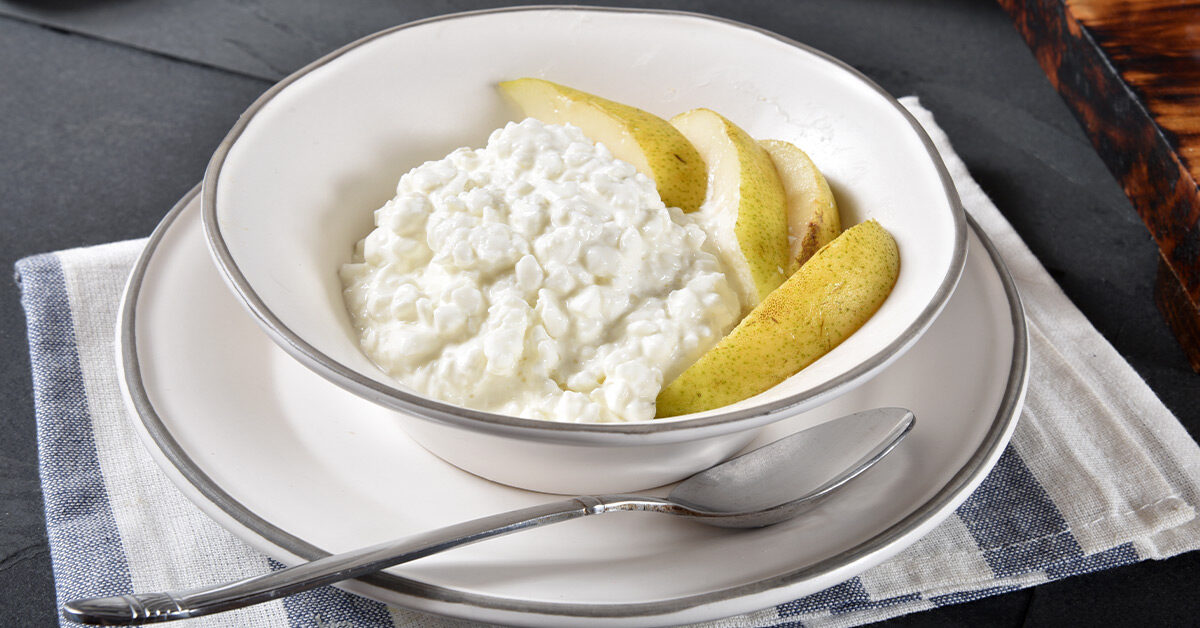What is Cottage cheese? Top Cottage Cheese health benefits. Looking for a healthy cheese option that tastes delicious? It’s a great choice to eat cottage cheese! A great source of protein and other nutrients, cottage cheese has several health benefits. Find out what makes this cheese so tasty and why it’s good for you by reading on.
Introduction
Fresh cheese known as cottage cheese can be found in the form of soft curds or as hard, high-fat cheese. Curdled milk is a food made by curdling fresh milk with acid.
Cheddar is produced by coagulating milk with acid and allowing the mixture to ripen, whereas soft cheese is manufactured by coagulating milk with acid and then allowing the mixture to ripen.
In the process of pressing and draining the curd, the whey is drained. Cottage cheese is high in protein and low in fat. There are many countries where this dish is eaten as a salad or as a snack.
There are several important nutrients in cottage cheese, including protein, fat, vitamins, and minerals. The top health benefits of cottage cheese are listed below.
What Is cottage cheese?
Cottage cheese is a type of cheese derived from curdled milk. The most common milk used to make it is cow’s milk, but goat’s milk and sheep’s milk can also be used. In the next step, the curdled milk is strained and the whey is removed.
Cottage cheese is a mild cheese with a soft texture. Crackers and bread are often spread with it and used in salads.
A farmer’s cheese or pot cheese is another name for this type of cheese. Usually, it is served with fruit, vegetables, or as part of a salad. The protein content of cottage cheese is higher than that of cream cheese. Aside from calcium, it is also a good source of vitamin A.
How to make cottage cheese?
To make cottage cheese, you will need the following ingredients:
Ingredients:
- 1 gallon of whole milk
- 1 cup of white vinegar
- 1 teaspoon of salt
- Cheesecloth
Step: 1
Use a large pot, and heat the milk over medium heat until it reaches 185 degrees Fahrenheit. Mix vinegar and salt gently together.
Step: 2
Allow the pot to cool for about 15 minutes after you remove it from the heat.
Step: 3
Place a colander over a large bowl and line it with cheesecloth.
Step: 4
After pouring the milk mixture into the colander, allow it to drain for about 15 minutes.
Step: 5
The cheesecloth should be gathered at the corners and tied together, then hung over a sink or bowl for 6 to 8 hours to drain.
Final Words:
Transfer the cheese to a storage container and refrigerate until ready to use.
What are the health benefits of cottage cheese?
Cottage cheese is a type of cheese made from curdled milk. This cheese has a low-fat content, along with a high protein content and a high calcium content.
Many health benefits are associated with cottage cheese, such as promoting weight loss, reducing osteoporosis risk, and improving digestion.
- Protein is essential for weight loss, and cottage cheese is a good source of it. Because protein takes longer to digest than other nutrients, it keeps you full for longer periods.
- Moreover, protein helps build and maintain lean muscle mass.
- Calcium is also an important nutrient for bone health, and cottage cheese is a good source. As a result of calcium, osteoporosis, a condition characterized by fragile bones, is reduced.
- Last but not least, cottage cheese is easy to digest due to its high lactose content. Lactose is a type of sugar that can be broken down easily by the body. Because of this, cottage cheese is a good choice for people who have digestive problems.
How to store cottage cheese?
It is recommended that you store cottage cheese in a covered container in the refrigerator. Keeping cottage cheese in this manner will prolong its shelf life by two weeks.
Cottage cheese may change in texture and taste as it ages, but you can still eat it. Cottage cheese should be discarded if mold is growing on it.
How to keep cottage cheese from spoiling?
To prevent cottage cheese from spoiling, it should always be refrigerated. It is best to store cottage cheese in the refrigerator at cooler temperatures to prevent it from spoiling.
If you aren’t planning on eating the cottage cheese within a few days, you can freeze it to extend its shelf life. Place cottage cheese in a freezer-safe container before freezing.
How you can make cottage cheese part of your daily diet?
Cottage cheese can be incorporated into your daily diet in a variety of ways.
- It is delicious plain or added to fruit or other dishes.
- Moreover, you can use it in recipes instead of other cheeses.
Cottage cheese is an excellent source of protein and calcium, as well as being low in fat and calories. The benefits of eating cottage cheese include meeting your daily nutrient requirements and improving your health.
Conclusion
In addition to being one of the richest sources of calcium, dairy products are also important for the formation of healthy bones. Vitamins A, D, and B-12 are also abundant in dairy products.
In order to make cottage cheese, milk is curdled with an acidic substance. Protein, calcium, and other essential nutrients can be found in great abundance in it.








